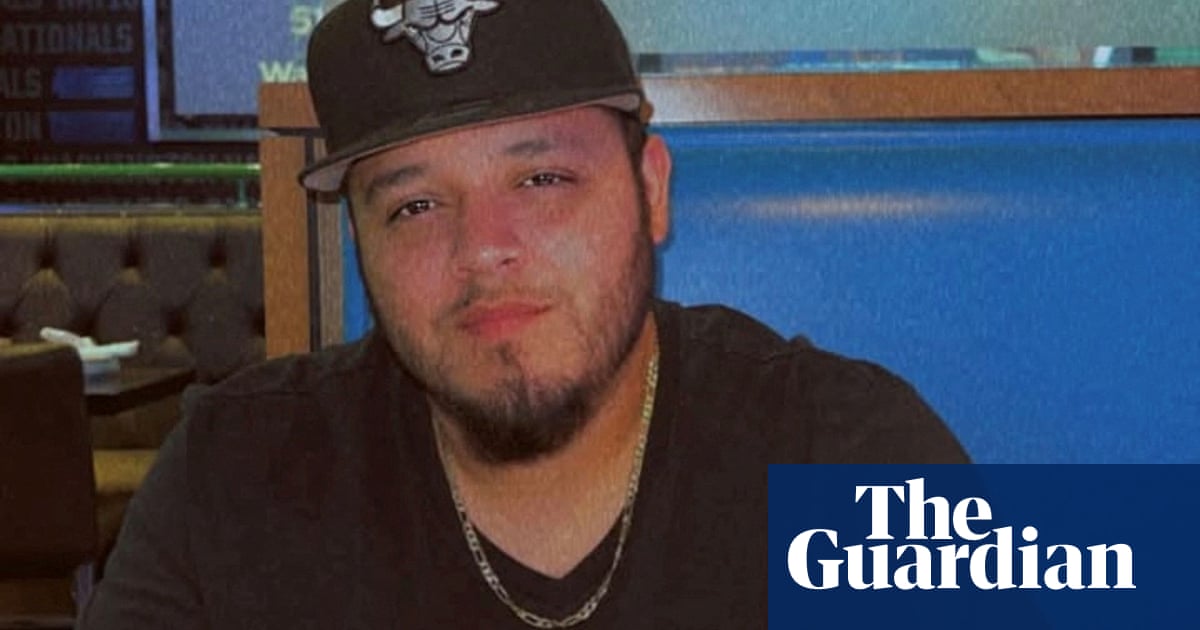ATennesseejudge on Sunday ordered the release ofKilmar Ábrego García, whose mistaken deportation has become a flashpoint inDonald Trump’s immigration crackdown, while he awaits a federal trial onhuman smuggling charges. But he is not expected to be allowed to go free.
At his 13 June detention hearing, prosecutors said US Immigration and Customs Enforcement (Ice) would take Ábrego García into custody if he were released on the criminal charges, and he could be deported before he has a chance to stand trial.
US magistrate judge Barbara Holmes has scheduled a hearing for Wednesday to discuss the conditions of Ábrego García’s release. The US government has already filed a motion to appeal the judge’s release order.
Holmes acknowledged in her ruling on Sunday that determining whether Ábrego García should be released is “little more than an academic exercise” because Ice will probably detain him. But the judge wrote that everyone is entitled to the presumption of innocence and “a full and fair determination of whether he must remain in federal custody pending trial”.
Holmes wrote that the government failed to prove that Ábrego García was a flight risk, that he posed a danger to the community or that he would interfere with proceedings if released.
“Overall, the Court cannot find from the evidence presented that Ábrego’s release clearly and convincingly poses an irremediable danger to other persons or to the community,” the judge wrote.
Ábrego García has pleaded not guilty to the smuggling charges that his attorneys have characterized as an attempt to justify the deportation mistake after the fact.
The acting US attorney for the middle district ofTennessee, Rob McGuire, argued on 13 June that the likely attempt by Ice to try to deport him was one reason to keep him in jail.
But Holmes said then that she had no intention of “getting in the middle of any Ice hold”.
“If I elect to release Mr Ábrego, I will impose conditions of release, and the US Marshal will release him.” If he is released into Ice custody, that is “above my pay grade”, she said.
The judge suggested that the Department of Justice and the Department of Homeland Security could work out between themselves whether the government’s priority is to try him on the criminal charges or deport him. No date has been set for the trial.
Will Allensworth, an assistant federal public defender representing Ábrego García at the detention hearing, told Holmes that “it’s not necessarily accurate that he would be immediately deported.”
A 2019 immigration judge’s order prevents Ábrego García, who had been living in Maryland, from being deported to his home country of El Salvador, Allensworth said in court. That’s because he faces a credible threat from gangs there, according to court papers.
The government could deport him to a third country, but immigration officials would first be required to show that third country was willing to keep him and not simply deport him back to El Salvador, Allensworth said.
The smuggling charges stem from a 2022 traffic stop for speeding in Tennessee during which Ábrego García was driving a vehicle with nine passengers. Although officers suspected possible smuggling, he was allowed to go on his way with only a warning. He has pleaded not guilty.
At the detention hearing, McGuire said cooperating witnesses have accused Ábrego García of trafficking drugs and firearms and of abusing the women he transported, among other claims. Although he is not charged with such crimes, McGuire said they showed Ábrego García to be a dangerous person who should remain in jail pretrial.
Ábrego García’s attorneys have characterized the smuggling case as a desperate attempt to justify the mistaken deportation. The investigation was launched weeks after the US government deported Ábrego García and the supreme courtordered the administrationto facilitate his return amid mounting public pressure.
The US is now expected to try to deport him again with much of the world watching and the outcome hard to predict.
Most people in Ice custody who are facing criminal charges are not kept in the US for trial but deported, César Cuauhtémoc García Hernández, an Ohio State University law professor, said.
The US will probably try to deport Ábrego García quickly without going before an immigration judge, the professor said. The government would not need a conviction to deport him because Ábrego García came to the US illegally.
“The legal standard is laxer,” García Hernández said. “The government’s argument is on stronger legal footing.”
However an immigration judge rules, the decision can be appealed to the board of immigration appeals, García Hernández said. And the board’s ruling can then be contested in a federal appeals court.
